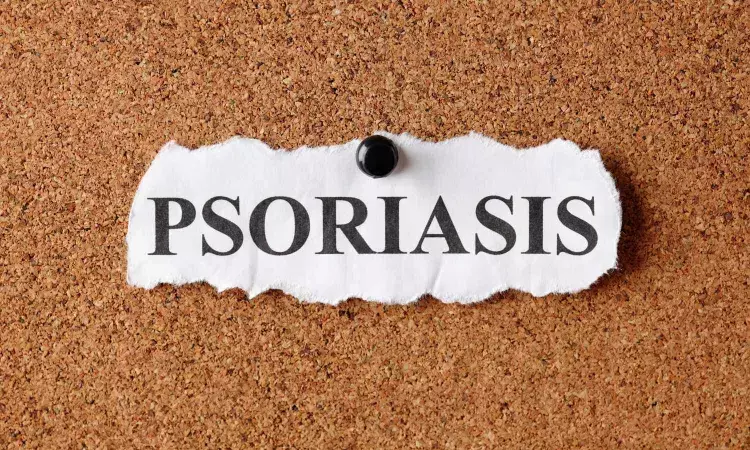- Home
- Medical news & Guidelines
- Anesthesiology
- Cardiology and CTVS
- Critical Care
- Dentistry
- Dermatology
- Diabetes and Endocrinology
- ENT
- Gastroenterology
- Medicine
- Nephrology
- Neurology
- Obstretics-Gynaecology
- Oncology
- Ophthalmology
- Orthopaedics
- Pediatrics-Neonatology
- Psychiatry
- Pulmonology
- Radiology
- Surgery
- Urology
- Laboratory Medicine
- Diet
- Nursing
- Paramedical
- Physiotherapy
- Health news
- Fact Check
- Bone Health Fact Check
- Brain Health Fact Check
- Cancer Related Fact Check
- Child Care Fact Check
- Dental and oral health fact check
- Diabetes and metabolic health fact check
- Diet and Nutrition Fact Check
- Eye and ENT Care Fact Check
- Fitness fact check
- Gut health fact check
- Heart health fact check
- Kidney health fact check
- Medical education fact check
- Men's health fact check
- Respiratory fact check
- Skin and hair care fact check
- Vaccine and Immunization fact check
- Women's health fact check
- AYUSH
- State News
- Andaman and Nicobar Islands
- Andhra Pradesh
- Arunachal Pradesh
- Assam
- Bihar
- Chandigarh
- Chattisgarh
- Dadra and Nagar Haveli
- Daman and Diu
- Delhi
- Goa
- Gujarat
- Haryana
- Himachal Pradesh
- Jammu & Kashmir
- Jharkhand
- Karnataka
- Kerala
- Ladakh
- Lakshadweep
- Madhya Pradesh
- Maharashtra
- Manipur
- Meghalaya
- Mizoram
- Nagaland
- Odisha
- Puducherry
- Punjab
- Rajasthan
- Sikkim
- Tamil Nadu
- Telangana
- Tripura
- Uttar Pradesh
- Uttrakhand
- West Bengal
- Medical Education
- Industry
IL-17 Inhibitors Increase Risk of Candida and Fungal Infections in Psoriasis Patients: Study

Researchers have found in a recent analysis reveals IL-17 inhibitors significantly increase the risk of Candida infections and other superficial fungal infections in patients with moderate-to-severe psoriasis, compared to placebo and other biologics.
Biologic agents have become a key treatment option for moderate-to-severe plaque psoriasis; however, the associated risk of superficial fungal infections, such as Candida and dermatophytes infections, remains unclear.
This study aims to systematically assess the impact of different biologic agents on these infection risks and to compare the differences between them. Research questions and keywords were developed based on the Population, Intervention, Control and Outcome (PICO) framework.
A systematic search of PubMed, EMBASE, the Cochrane Library and Web of Science was conducted for randomised controlled trials (RCTs) published up to December 2024, using the keywords ‘psoriasis’, ‘biologics’, ‘anti-IL-17’, ‘anti-IL-12/23’, ‘anti-TNF’, ‘superficial fungal infections’, ‘dermatophyte infections’, ‘Candida’ and ‘onychomycosis’. Meta-analyses were performed using RevMan 5.4 and STATA 16.0 software. Results: A total of 644 records were identified, with 29 articles included in the final analysis.
Meta-analysis indicated that compared with placebo, interleukin-17 (IL-17) inhibitors notably raised the risk of Candida infections (OR = 2.39, 95% CI = 1.84–3.11, p < 0.00001), whereas tumour necrosis factor-alpha (TNF-α) inhibitors (OR = 1.75, 95% CI = 0.53–5.82, p = 0.36) and interleukin-12/23 (IL-12/23) inhibitors (OR = 1.11, 95% CI = 0.27–4.63, p = 0.88) showed no significant differences. Cross-comparison demonstrated that IL-17 inhibitors had a higher risk of Candida infection compared to TNF-α inhibitors (OR = 2.23, 95% CI = 1.08–4.57, p = 0.03) and IL-12/23 inhibitors (OR = 4.21, 95% CI = 2.71–6.55, p < 0.00001). For dermatophyte infections, the overall risk associated with biologic agents was increased (OR = 1.89, 95% CI = 1.19–3.01, p = 0.007), IL-17 inhibitors showed a higher risk compared to IL-12/23 inhibitors (OR = 2.70 95% CI = 1.29–5.63, p = 0.008). Overall, biologic agents significantly increased the risk of superficial fungal infections compared to placebo (OR = 2.10, 95% CI = 1.73–2.55, p < 0.00001). Biologic agents, particularly IL-17 inhibitors, notably increase the risk of superficial fungal infections in psoriasis patients.
In clinical practice, targeted monitoring protocols should be established, including regular follow-up to promptly detect superficial fungal infections and initiate antifungal treatment as necessary.
Reference:
H. Liu, L. Zhou, Z. Song, R. Zhang, and Y. Kang, “ Biologic Therapy and Superficial Fungal Infection Risk in Moderate-to-Severe Psoriasis: A Meta-Analysis,” Mycoses 68, no. 6 (2025): e70081, https://doi.org/10.1111/myc.70081.
Dr. Shravani Dali has completed her BDS from Pravara institute of medical sciences, loni. Following which she extensively worked in the healthcare sector for 2+ years. She has been actively involved in writing blogs in field of health and wellness. Currently she is pursuing her Masters of public health-health administration from Tata institute of social sciences. She can be contacted at editorial@medicaldialogues.in.
Dr Kamal Kant Kohli-MBBS, DTCD- a chest specialist with more than 30 years of practice and a flair for writing clinical articles, Dr Kamal Kant Kohli joined Medical Dialogues as a Chief Editor of Medical News. Besides writing articles, as an editor, he proofreads and verifies all the medical content published on Medical Dialogues including those coming from journals, studies,medical conferences,guidelines etc. Email: drkohli@medicaldialogues.in. Contact no. 011-43720751


